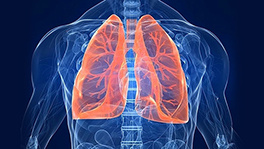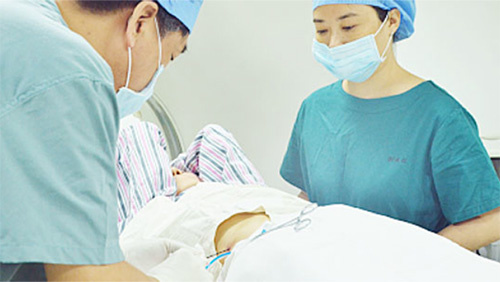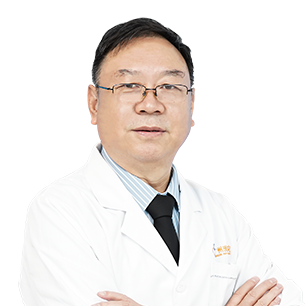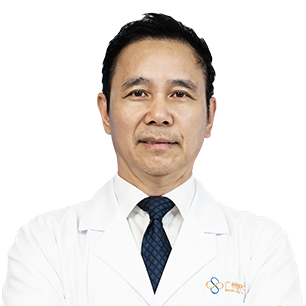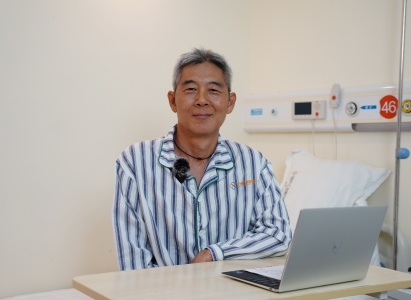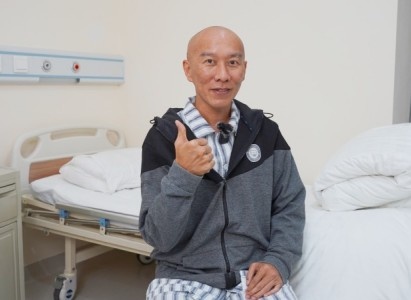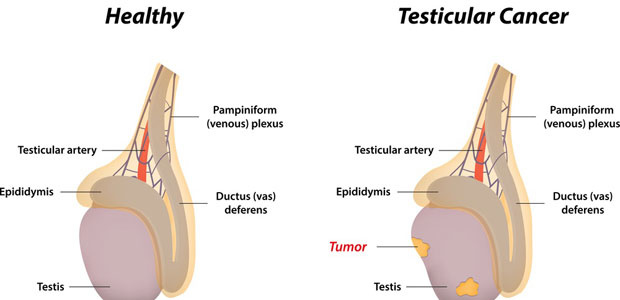
What is testicular cancer?
Testicular cancer is malignant cancer that starts in the testicular tissues and caused by the cancerization of testicular cells. It is mainly divided into two types, namely, seminomas and non-seminomas.
What are the incidence and survival rate of testicular cancer?
Testicular cancer is clinically rare and only accounts for 2 percent of all male malignant cancers. Its risk group is from 20 to 40 years old. Clinical treatment effect of testicular cancer is evident, with which 5-year survival rate can reach 95%, even higher.
If you are diagnosed with cancer, we're here to offer you help.
What are the risk factors of testicular cancer?
Dietary habit: long-term intake of foods grew or fed with hormonal materials.
Characteristic factors: study has proved that people who are introverted and long-term depressive have high risk of testicular cancer.
Environment factors: air pollution, machinery radiation (such as computer, induction cooker, microwave, cell phone), noise, and so on.
Hereditary factors: study proved that hereditary factors are related to testicular cancer.
What are the early signs of testicular cancer?
Acute testicular pain
Infertility
Heaviness feeling in the testicle
Swelling of the testicle
Acute abdominal pain
Hard testicle
Gynecomastism
If you are diagnosed with cancer, we're here to offer you help.
What are the risks of testicular cancer?
Testicular cancer can cause dead sperms or no sperm, thus the patient loses fertility ability. Moreover, the inflammatory virus from the patient can probably infect the patient’s partner, causing gynecological disease to females.
Testicular cancer can cause sperm loss, kidney deficiency, vigor consumption, back pain and early aging.
Testicular cancer can also cause sexual function decline, or even sexual dysfunction.
What are the diagnosis methods of testicular cancer?
Laboratory examination: mainly blood test, including β-HCG, AFP and LDH test, which are helpful in cancer treatment, follow-up checking and prognosis.
Imaging examination: B-ultrasound, abdomen CT scan, MRI, lymphangiography, radionuclide scan and chest X-ray film, all these examinations are helpful in determining whether there is metastasis.
Biopsy: biopsy is a good way to diagnose whether there is cancer.
If you are diagnosed with cancer, we're here to offer you help.
Traditional treatment methods for testicular cancer
Surgery: to remove part of the testicle with incision in the inguinal groove
Chemotherapy:it is often used after surgery as an assistant treatment, which is to kill the cancer cells with anti-cancer medicines.
Radiation therapy: it is a local treatment method, which only affects cancer cells in the treated area, to shrink the tumor by killing the cancer cells with high-energy radioactive rays.
Chinese characteristic treatment methods
After years of research, Chinese medication of Modern Cancer Hospital Guangzhou is able to nurse and balance the patient’s health and reinforce patient’s physical constitution during treating testicular cancer. Oral intake or arterial infusion of Chinese medicine to treat testicular cancer can inhibit the growth of testicular cancer, improve the patient’s immunity and eliminate the side-effects from chemotherapy and radiation therapy. Moreover, combination of Chinese medicine and Western medicine gains a better treatment effect than any other individual therapy does. It is an advanced comprehensive cancer treatment mode.
If you are diagnosed with cancer, we're here to offer you help.
What is the postoperative care for testicular cancer patients?
Dietary care Testicular cancer patients should take in more foods high in calories, protein and vitamin, and avoid smoking, drinking and stimulating foods.
Mental care Help the patient establish a steady believe to face disease and fight against cancer, help them get rid off depression, pay attention to their mental activities, care about them and listen to them.
Life care Pay attention to the nursing of the patients’ skin, clean their skin with warm water daily, help them roll over regularly, and massage their arms and legs.
Pay attention to the environment Keep the room clean, quiet and full of fresh air, and maintain proper temperature and humidity.


 (MY)+60 10-898 8919
(MY)+60 10-898 8919


